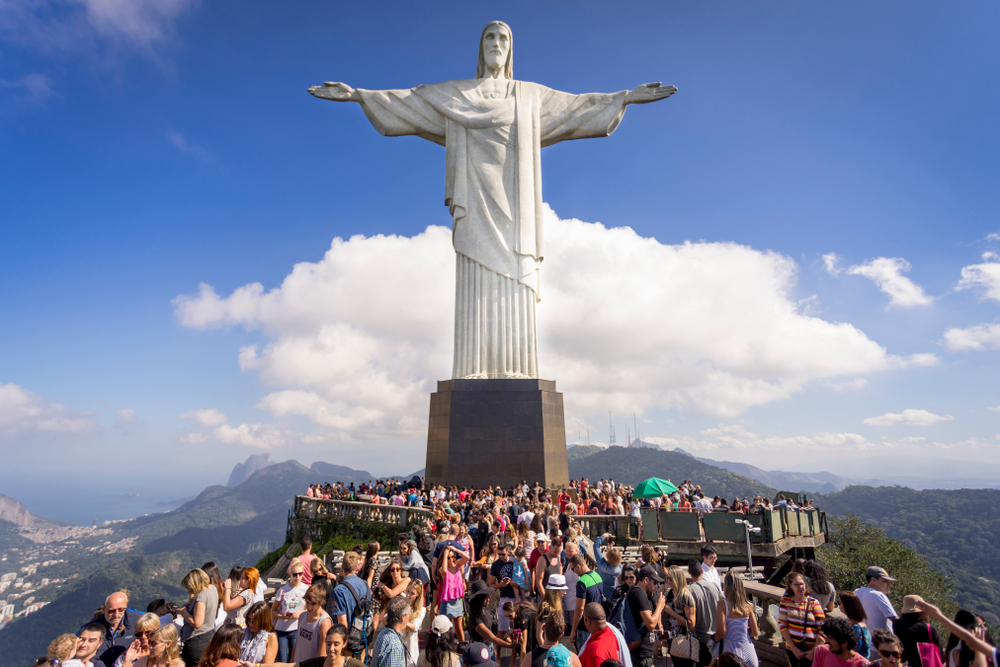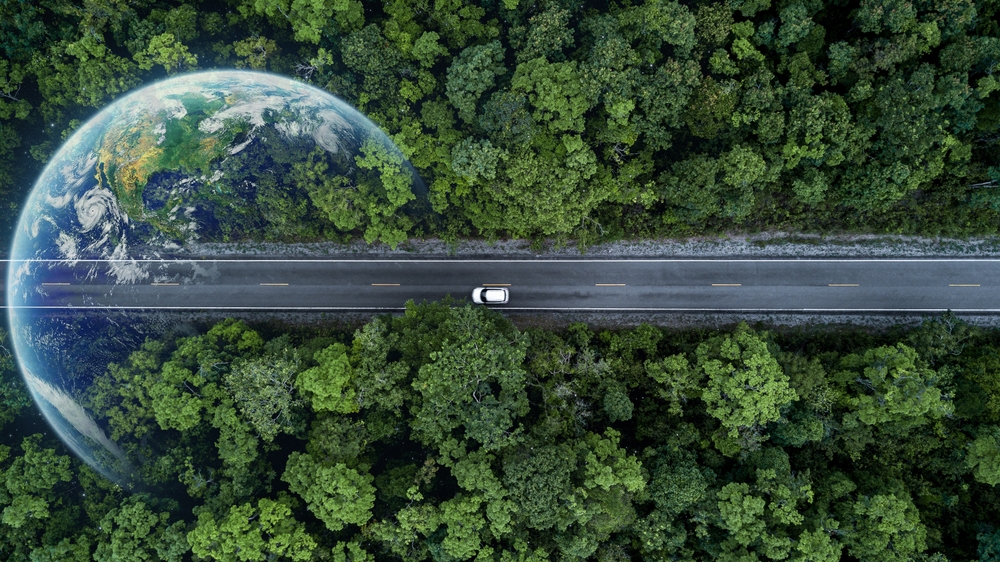Sustainable Tourism: How Travel is Evolving in an Eco-Friendly Direction

When we consider the mantra of ‘leave no trace’ in our travels, it seems a lofty goal against the backdrop of environmental crises and cultural commodification. Yet, it’s this very challenge that propels the compelling shift toward sustainable tourism, a realm where every jet-setting adventure brings us closer to the harmonious balance we seek with our planet. This evolving travel landscape invites each of us to become custodians of the world’s treasures, transforming our explorations into positive footprints across cultures and ecosystems. It’s a journey not just to new destinations but towards a future where our wanderlust plays a vital role in the tapestry of global conservation. Ready to see how your travel choices can foster a healthier Earth? Stay with me, because this is a narrative where every chapter promises a better world for generations yet to roam.
Unveiling the Challenges of Traditional Tourism

Travel has always been an escape, a way to explore new horizons. Yet, our traditional methods have left indelible marks on the world. Consider the footprint we leave behind—environmental degradation, rampant waste production, and the cultural erosion of many exotic locales. Precious coral reefs are bleaching due to increasing ocean temperatures, while popular historical sites are crumbling under the weight of mass tourism. Studies like those from the United Nations World Tourism Organization (UNWTO) highlight these impacts and call for immediate action. These challenges paint a bleak picture, but from amidst the shadows of tourism’s shortcomings, a new dawn emerges.
The Rise of Eco-Tourism
Eco-tourism springs up as the beacon of hope in this scenario—a transformative approach that promises to heal rather than harm. Eco-tourism, or sustainable travel, pivots on the tenets of environmental respect, cultural sensitivity, and socio-economic support. But what does it actually entail? Let’s peel back the layers:
- Conservation: Protecting and enhancing the natural environment
- Support for Locals: Directing tourism profits to local communities
- Cultural Respect: Celebrating and preserving indigenous customs and heritage
- Education: Increasing awareness and understanding of local issues
It’s not merely about having a low impact, but actually leaving a place better than you found it—now that’s a travel story worth telling.
A New Way to Travel: The Promise of Eco-Tourism
Imagine a world where your travel adventures contribute positively to the places you visit. This is the central promise of eco-tourism. Instead of being part of the problem, travellers can become part of the solution. You might wonder, how? It starts with understanding the basic principles of sustainable travel:
- Choosing accommodations that are dedicated to reducing their environmental impact
- Participating in tours that ensure local flora and fauna aren’t disturbed
- Supporting businesses that invest in the local economy and its people
By committing to these principles, travellers can enjoy a richer, more authentic experience while contributing to the longevity and prosperity of their beloved destinations.
But that’s just the surface. In the next installation, we will dive deeper into how eco-tourism specifically contributes to the sustainable development of regions and explore the eco-friendly practices that can make your travel more meaningful. Are you ready to learn how to become a catalyst for positive change in the world while discovering it? Stay tuned.
Implications of Eco-Tourism for Sustainable Development

As wanderlust drives us toward distant horizons, we must ask: how can our travels reinforce the pillars of sustainable development? Eco-tourism isn’t just a fleeting trend; it’s a powerful force for preserving our planet while uplifting communities and diversifying economies. Who knew that our thirst for adventure could contribute to conservation, cultural preservation, and economic prosperity?
Eco-Friendly Practices for Eco-Tourism
Embracing eco-friendly practices is the heart of responsible travel. Consider this a roadmap for your green journey:
- Educate Yourself: Knowledge is a traveler’s best friend. Before setting foot on new lands, learn about their ecosystems and societies. Your awareness can drive change.
- Engage with Local Guides: Local experts offer far more than just history and stories; they open doors to authentic experiences and insight into the preservation of their heritage.
- Support Conservation Efforts: Whether it’s adopting endangered species or participating in reforestation, your contributions go a long way.
By consciously choosing where and how we travel, the impact we leave behind can echo positivity for generations.
Decoding the Eco-Tourism Experience
Imagine waking up to the sound of waves in a lodge powered by the breeze, your itinerary – a blend of discovery and contribution. A typical eco-tourism adventure could see you:
- Snorkel with marine biologists working to save coral reefs.
- Volunteer in wildlife sanctuaries that rehabilitate and release animals.
- Dine on local, organic fare that supports nearby farmers.
It’s travel experiences like these that engrave a sense of purpose and connection. In the words of renowned conservationist Jane Goodall, “What you do makes a difference, and you have to decide what kind of difference you want to make.”
Now that we’ve painted a picture of the present eco-tourism landscape, one can’t help but ponder, what innovative technologies await eco-conscious travelers around the corner? Is there a digital tide rising in the horizon that could elevate our eco-travel practices beyond our imagination? Stay tuned for insights on the techno-green revolution that’s shaping the future of sustainable exploration.
Eco-Friendly Travel Technologies

As we move forward in our eco-conscious journey, technology becomes an invaluable ally in the travel industry’s shift towards sustainability. Think about it, with every app download, every digital boarding pass, and every e-map that replaces a paper one, we make strides in reducing our environmental footprint.
Sustainable Travel: Environmental Impact and Beyond
Traveling gently on the earth doesn’t have to mean trekking in solitude through remote wilderness. It can be as simple as choosing a solar-powered backpack to charge your devices while on the move. Or booking with eco-sensitive hotels that use intelligent systems to conserve energy and water. The idea is to enhance your journey while minimizing its impact on our planet’s precious resources.
Sustainable travel goes much deeper than just lowering emissions. It’s about embedding the respect for nature into every gadget and gear we carry, every itinerary we plan, and every experience we seek. From carbon footprint tracking apps to eco-friendly accommodation finders, technology is not just aiding our travels, it’s transforming them from the ground up.
The Bigger Picture: How Sustainable Travel Helps Local Communities
But what about the people whose lands we tread upon? The culture that welcomes us with open arms? Let’s not forget, sustainable travel unearths the beauty of mutual respect between visitor and host. It cultivates economic opportunities by funneling tourist dollars into local communities rather than global conglomerates.
Leveraging technology, communities can now directly reach out to travelers through platforms that promote local experiences and homestays. This reduces the instances of overtourism and channels funds back into the hands of local artisans, farmers, and entrepreneurs. Imagine, with every artisan-crafted souvenir you purchase through a fair-trade app, you’re actually fueling a family’s livelihood.
Quote:
“Our greatest responsibility is to be good ancestors.” — Jonas Salk
This rings true for travelers and residents alike; technology helps us fulfill that duty, ensuring our children inherit a world bursting with cultural diversity and natural splendor.
- Apps connecting travelers with local guides
- Platforms supporting local businesses and crafts
- Eco-rating tools for accommodations and services
So, while you’re eagerly anticipating which eco-smart gadget or app to pack for your next adventure, let’s ponder over something: How do these technologies shape the very essence of the local cultures we’re so keen to experience?
Stay tuned as we unfold the evolving narrative of sustainable travel, revealing the compelling roles played by both companies and travelers alike. What role will you choose in this tale of conscious exploration?
The Evolution of Sustainable Travel

The journey of sustainable tourism is akin to the metamorphosis of a butterfly — it’s a continuous transformation, slowly becoming a magnificent example of change within the travel industry. With each passing day, it’s becoming more evident that sustainable travel is not a mere trend but a full-blown mainstream movement. We are witnessing innovative travel initiatives emerge, all driven by the relentless pursuit of eco-friendliness.
Adapting to Sustainable Travel: The Role of Travel Companies
One can’t help but notice the significant strides travel companies are making in this evolution. From incorporating carbon offset programs to investing in local communities and promoting conservation projects, travel enterprises are stepping up to the challenge. These forward-thinking companies are not just adapting to a new market demand; they’re actively reshaping the travel landscape. For instance, take a look at this LinkedIn article detailing how a major travel agency revamped its business model to prioritize sustainability — it’s a revelation and serves as a blueprint for others to follow.
- Introducing cleaner, fuel-efficient fleets to reduce carbon emissions.
- Partnering with eco-friendly accommodations that minimize waste and conserve water.
- Providing travelers with eco-conscious travel packages and experiences.
These significant changes by the travel companies set an example and serve to inspire others within the industry: when one leads, others follow. Truly, this collective momentum can propel the sustainable travel movement to new heights!
The Role of Travellers in the Evolution of Sustainable Travel
But the evolution of sustainable tourism isn’t solely in the hands of travel companies; it’s every traveler’s responsibility too. As voyagers of the world, we hold immense power to drive change — through the choices we make, the places we visit, and the practices we adopt.
When you choose to travel sustainably, you’re contributing to a much bigger picture. It’s about feeling the spirit of each destination without leaving a negative imprint. It’s about understanding the delicate balance between exploring and conserving. Remember, “We do not inherit the earth from our ancestors, we borrow it from our children” — a Native American proverb that perfectly encapsulates our duty as travelers.
- Opting for lodgings that have a widely-recognized eco-certification.
- Seeking out experiences that support conservation and benefit local communities.
- Reducing waste by limiting the use of single-use plastics and recycling whenever possible.
It’s in these personal actions and commitments where the true essence of sustainable travel lies. You, as a traveler, are the protagonist in this narrative of change — your choices weave the fabric of a brighter travel future. So, after laying out how we’re all part of this ever-evolving voyage, one can’t help but wonder: how will these changes hold up against future challenges?
That’s a question we’re all eager to explore. And as you ponder this, remember: your next travel decision could contribute to a ripple effect of positive change. Stay tuned for the insights on the challenges that sustainable tourism faces and the exciting future trends. Can the current momentum be maintained, and what’s the next leap forward? Let’s investigate further…
Sustainable Tourism: Challenges and Future Trends

As the pulse of sustainable tourism quickens, it’s crucial to navigate the undulating path ahead, marked by hurdles and fresh directions. These challenges, while daunting, catalyze innovation as the industry steers toward a greener horizon. But what does the future of sustainable travel look like?
Overcoming the Hurdles in Sustainable Tourism
Even as sustainable tourism blooms, it faces its share of challenges. Accessibility and affordability often weigh heavily on potential eco-travelers. More so, there’s a pressing need for transparent, accurate information regarding the true impact of eco-friendly practices. Yet, I’m convinced that we can transform these barriers into stepping stones for progress.
Consider this insightful Forbes article, which sheds light on the evolving landscape of sustainable travel tech. It elucidates how advancements are not only confronting challenges but are paving the way for an integrated, sustainable travel experience. From reducing carbon footprints to empowering local communities, the convergence of tourism and technology is a beacon of hope.
Looking to the Future: What’s Next for Sustainable Travel?
Speculating about upcoming trends in sustainable travel is akin to stargazing; we look into the night sky of possibility. A future where virtual reality enhances travel planning, or where carbon-negative resorts become the standard, is within our grasp. For a deeper exploration, Stylus dives into the evolution of sustainable tourism, flagging innovative trends that are shaping our travel tomorrow.
Your travel decisions have the power to endorse sustainability and create ripples of positive change. Imagine indulging in immersive cultural experiences that benefit both you and the host community, or waking up in an eco-lodge that’s fully integrated with its natural surroundings. These visions of the future are forming today’s reality.
Which leads us to wonder, how will our travel choices reshape the future landscape of global tourism? Can we brave the challenges and embrace the innovations necessary for sustainable travel to flourish?
Stay tuned as we continue on this journey. In the next segment, we’ll pivot from awareness to action, discussing how small changes can yield a profound impact. We’re on the cusp of a transformation. Are you ready to be part of it?
From Awareness to Action: The Path to Sustainable Travel

Embarking on a path towards sustainable travel starts with understanding the impact of our globe-trotting habits – and perhaps, most importantly, knowing that even the smallest switches in our behavior can have a profound effect on the environment and the communities we visit. It’s about transforming awareness into actual, positive action.
Small Changes, Big Impact
Have you ever considered how simply opting for a reusable water bottle on your travels could save an innumerable amount of single-use plastics from polluting our oceans? Or how choosing to walk or cycle instead of driving could not only improve your health but also cut down on harmful emissions? Each decision we make can contribute to a larger, collective effort to travel more responsibly.
Imagine this: by supporting local artisans and purchasing their unique goods, you’re not just going home with a one-of-a-kind souvenir but also ensuring that your money empowers the local economy. Likewise, by opting to stay in eco-conscious accommodations, you’re pushing the hotel industry to focus on sustainable practices. These real-world examples serve to illustrate that our day-to-day choices pack a powerful punch for sustainable development.
Final Thoughts on Sustainable Travel
So why does sustainable tourism matter? Simply put, it’s the cornerstone of traveling in a manner that secures the wonders of our world for future generations to discover. It nurtures the planet, safeguards cultural heritage, and fosters community growth. And let’s not forget, it enriches your travel experience by creating more meaningful connections with the places and people you encounter.
As we move forwards, embracing sustainable travel practices becomes less of an option and more of a necessity. It’s genuinely the difference between being a tourist and being a true global citizen, one who cherishes and respects the diversity and splendor of our shared world.
The Eco-Travel Revolution: A Journey Worth Taking
In the final analysis, this eco-travel revolution is one brimming with hope and possibility. Sustainable tourism isn’t just some fleeting trend; it’s reshaping the way we explore and expanding our horizons – both outwardly and inwardly. At the end of the day, isn’t that what travel is all about?
So, gear up and set the sails of change – because you’re not just joining a movement. You’re pioneering an exciting, ethical, and ever-evolving travel saga that promises enriching experiences today and preserves the beauty of our globe for tomorrow. Take your next step on this vital journey with a heart full of adventure and a commitment to make every mile traveled a testament to your love for our planet.